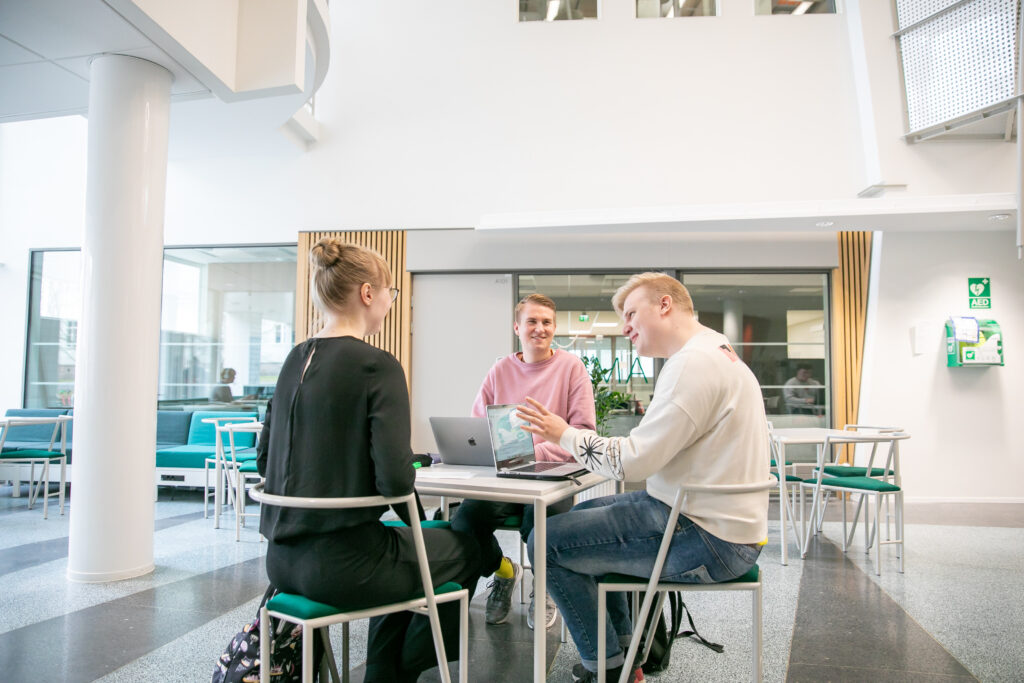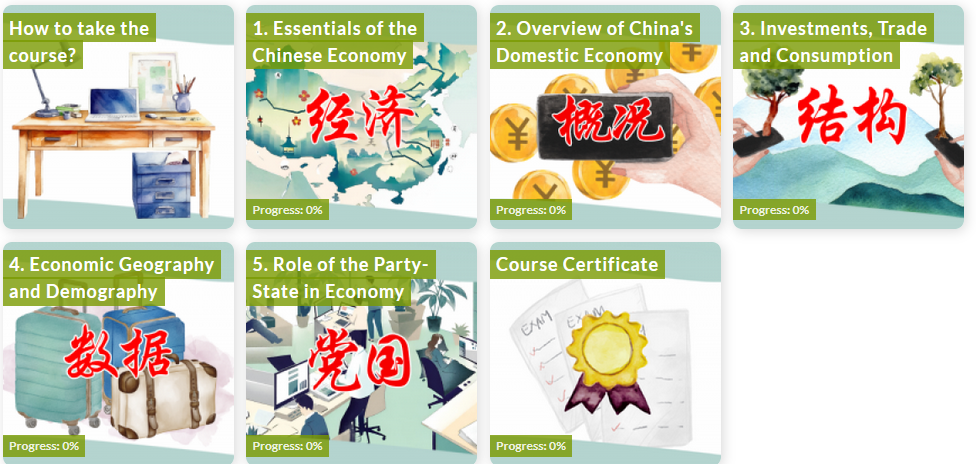Since the beginning of 2024, European students and the wider public have had the opportunity to enroll in open-access Bachelor-level online courses introducing various aspects of contemporary China. These massive open online courses (MOOCs), developed by the ReConnect China project, are now running uninterrupted until the end of 2026. These courses are specifically tailored for disciplines beyond China studies, such as business, political science, and media studies. They have been integrated into the curricula of several European academic programs.
The courses are:
Introduction to Chinese Politics and Society
https://digicampus.fi/course/view.php?id=5510
Introduction to EU-China Relations
https://digicampus.fi/course/view.php?id=5511
Introduction to Chinese Economy
https://digicampus.fi/course/view.php?id=4822
Introduction to Chinese Popular Culture
https://digicampus.fi/course/view.php?id=4823
This featured article presents key insights from the two courses offered during the spring term 2024. ReConnect China aims to raise awareness about China among the general public, particularly European youth. To this end, courses focusing on “Politics and Society” and “EU-China Relations” were prepared for the spring term, while courses on the Economy and Popular Culture started in autumn 2024.

Student Feedback on the course “Introduction to Chinese Politics and Society”
Let’s begin with the feedback from students of the recently concluded course “Introduction to Chinese Politics and Society.” Overall, the responses were very positive. “I found this course useful: it deepened my knowledge on the topic” was 4.5 on a scale of 1 to 5, with 5 being the highest. Course participants appreciated the flexibility of the study method, the structure and content of the course, and the design of the course site.
While fully independent online courses are sometimes considered challenging due to difficulties in time management, the respondents appeared to manage their studies well. Fifty out of 81 respondents “strongly agreed” (rating 5) with the statement “This course was easy to complete through independent study,” with the average rating being 4.45. This written response summarizes the comments on the course content and assignments.
“Overall presentation and selection of the course material provided: A++. The material was chosen thoughtfully, the visual presentation and illustration of content was marvellous and very appealing, the arrangement of chosen formats[…] and types of assignments were highly versatile and supportive. I particularly enjoyed the assignments, those were utmost helpful in terms of learning outcomes. […]There´s incredibly much I took with me from this course in such a short time, my personal learning outcome and knowledge gain are gigantic.”
The negative comments mainly pertained to minor technical issues and content-related matters influenced by the disciplinary backgrounds and general interests of the respondents. For example, one respondent mentioned that delving deeply into certain topics, such as the government structure, was unnecessary.
An interesting aspect of the feedback concerned the estimated usefulness of the course. The responses reveal how students from different disciplines perceived the utility of the course. Written comments to the statement “I can use what I have learned as follows” highlighted this variation in perceived usefulness.
– “Having an economics background I found this subject of study really refreshing. “
– “in my further dealing with Chinese culture and history”
– “I am interested in international relations and current issues and I feel that this course helped me to gain a better understanding of the world political situation.”
Current Feedback on the Course “Introduction to EU-China Relations”
The responses in the course “Introduction to EU-China Relations” are similar to those for the “Politics and Society” course. 73 out of 108 respondents “strongly agreed” (rating 5) with the statement “I found this course useful: it deepened my knowledge on the topic”. Participants appreciate the flexibility to plan their schedules independently and the variety of materials and assignments. Respondents also value the course’s relevance to working life, noting that it provides tools for analyzing the complex dynamics of contemporary interdependencies:
“Taking this course has been a great addition to my education, especially as I intend to work in international banking. It has given me invaluable insights into international relations, reflecting the interplay between diplomatic tactics, geopolitical considerations, and economic policies. In the context of global finance, it is essential to understand the nuances of EU-China relations. This course has given me a better understanding of the complex dynamics at work.”
“I am studying International Relations and I think this course was really useful, but I would also recommended it to everyone who is European and interested in the Sino-EU dynamics.”
Integration of MOOCs into Academic Programs
Several education programs have incorporated these courses into their offerings. For instance, the German China competency project CHIN-KoBe funded by the German Ministry of Education and Research, has designated all four courses as mandatory materials. Some university departments have recommended these courses to their students and even included them in their programs or study modules. This integration allows students to incorporate these courses into their degrees.
Jelena Gledic, Senior Instructor at the Faculty of Philology, University of Belgrade encouraged her students to enroll in the Politics and Society course. She summarized her experiences as follows:
“The opportunity to offer students to learn about these relevant topics at their own pace was highly appreciated! Around 30 3rd and 4th year students majoring in Chinese language, literature and culture at the University of Belgrade chose to take part in the pilot, and they were impressed with the wealth of information and contemporary significance of the content. They felt very engaged and enjoyed setting their own schedule while at the same time having the chance to share their experience with others taking the same online course. This content can be seamlessly integrated into courses that deal with similar topics or added as an optional learning opportunity for students who want to learn more than what more traditional Chinese studies curricula offer or who are majoring in other areas but have an interest in China.”

Conclusions
The MOOCs have proven to be valuable tools for European students seeking to enhance their understanding of contemporary China in a global context. Feedback from the courses has been overwhelmingly positive. Students appreciated the flexibility, comprehensive content, and practical relevance of these courses. Minor technical issues and content preferences were noted but did not significantly detract from the overall positive experience.
The courses have been successfully integrated into various academic programs, with some institutions making them mandatory or highly recommended. This integration has allowed students to seamlessly incorporate these MOOCs into their degree programs, enriching their academic and professional perspectives.
We hope that many university departments will consider including these courses in their programs to further enable their students to become acquainted with contemporary China.
Check out our YouTube page for a short introduction video and our video lectures.
https://www.youtube.com/@ReConnectChina
Link to ReConnect MOOC-page: https://www.reconnect-china.ugent.be/moocs/
For more information, please contact Dr Outi Luova who is in charge of the development of the courses. Outi Luova, Centre for East Asian Studies, University of Turku, Finland, e-mail: outi.luova@utu.fi